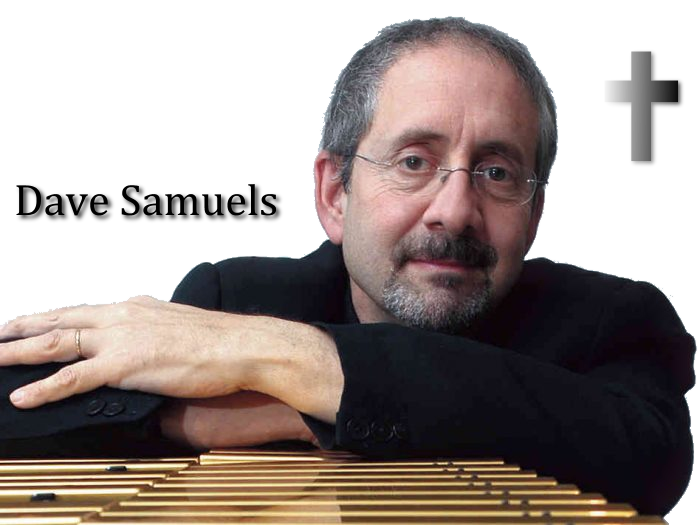
That opening riff. Hear that, and you know what's coming.
A tropical breeze, personified in music. I was a teenager, going into my senior year in high school when I first heard "Morning Dance," the signature song by what would become my favorite group, Spyro Gyra, in my favorite genre of music, jazz. Until then, the summer of 1979, I was a jazz novice, having only become focused on the genre a couple years earlier with the releases of Chuck Mangione's "Feels So Good" and Maynard Ferguson's cover of "Gonna Fly Now (Theme from 'Rocky')."
Of course, I was predestined to love jazz anyway, having become familiar with big band, swing and bebop stylings from old movies, cartoon shorts, TV show themes, a handful of television appearances by artists like Al Hirt, Louis Armstrong and Buddy Rich, and a few songs my mother sang. But those two songs by Mangione and Ferguson led me to purchase the associated albums: Mangione's Feels So Good and Ferguson's Conquistador. Listening to, and loving, all 12 tracks on the combined releases awakened my ears, and my mind, to the diverse soundscape that is jazz.
So with my interest in the genre growing as I transitioned from teen to adult, my attention was turned to this new group called Spyro Gyra.
Though saxophonist Jay Beckenstein is basically the front man for this group, and composer of "Morning Dance," it's the presence of Dave Samuels that sets this recording apart from other instrumental music of the time, or perhaps any era. The marimba, as lovely an instrument as there is, is not very common among small ensembles. So when I hear one, I take notice.
That was the case with a pop/rock song released a few years earlier: "Moonight Feels Right" by Starbuck.
A beautiful, easygoing, romantic song, "MFR," as composer/lead singer Bruce Blackman refers to it, is enhanced by Bo Wagner's marimba solo.
Likewise, Dave's solo enhances an already beautiful "Morning Dance."
After hearing a few more recordings, I became a fan of Spyro Gyra.
In the early years, Dave Samuels was more of a session player than a full-time member of the group, contributing some background sounds and solos on vibraphone or marimba. In 1983, he was invited to tour with the band and became a regular member, appearing more prominently on that year's City Kids than on previous albums. He composed his first song for the group, "Mardi Gras," for the 1985 album, Alternating Currents.
That song prepped me for Dave's next effort, "Whirlwind," from 1986's Breakout.
Breakout was aptly named, a slightly different and, in ways, more adventurous offering from Spyro Gyra. And the first time I heard "Whirlwind," I was awestruck. Something about it, that in 33 years I still am not sure I can adequately describe in words. First, there's the haunting, ethereal mood. The melody was unlike anything I'd ever heard. Every song is supposed to be different in some way, but "Whirlwind" was even more different than that. Of course, Dave's marimba solo is a major highlight. Then we get to Jay's solo on the alto sax, one of the most emotionally charging passages I'd ever heard up to that point. Add Richie Morales' drumming, Kim Stone's bass line, Tom Schuman's subtle work on the keys, Manolo Badrena on percussion, and Julio Fernandez's guitar, and you've got one for the ages .
"Whirlwind" quickly became a favorite song of mine.
When you consider the body of work a group like Spyro Gyra has produced, even the most loyal fan has a nearly impossible challenge to name a single favorite song. Or even a Top 10 that isn't always fluctuating, with track rankings on perpetual shuffle, or honorable mentions occasionally bumping a ranked song from the list. Yet, somehow, when fellow SG fans ask what my favorite song is, "Whirlwind" is always among the top three. Depending on how long since my most recent listen and what other favorites I've listened to during the interim, "Whirlwind" may be Number 1.
Dave would continue to perform with and compose for Spyro Gyra for another decade. He also released a few solo albums, and for several years fronted the Caribbean Jazz Project, a group that explored different aspects of Latin jazz.
Even after departing Spyro Gyra, Dave continued to contribute as a guest artist for several subsequent albums. Mixed in with all that, Dave taught at Berklee College of Music and the New England Conservatory of Music, produced the instructional video, Mallet Keyboard Musicianship in 1988, and wrote a book, Contemporary Vibraphone Technique, published in 1992.
Born on October 9, 1948, in Waukegan, Illinois, Dave Samuels died in New York City on April 22, 2019. Spyro Gyra announced his passing on the group's Facebook page.
I think anytime we lose a favorite artist, of any genre or medium, we feel a bit of ourselves gone. Especially when it's someone whose career has spanned decades, and we've been along for the ride during the bulk of said career. In my case, the musical artists who were with me during my developing years and most of my adult life and have had the greatest impact are Maynard Ferguson, the Eagles' Glenn Frey, Steely Dan's Walter Becker, Michael Jackson, Kelly Groucutt of the Electric Light Orchestra and Maurice White of Earth, Wind & Fire.
We hate to see them go. But at the same time, I feel joy from having experienced their contributions for so many years.
Thank you, Dave Samuels. You've made my world a better place.
![]()
